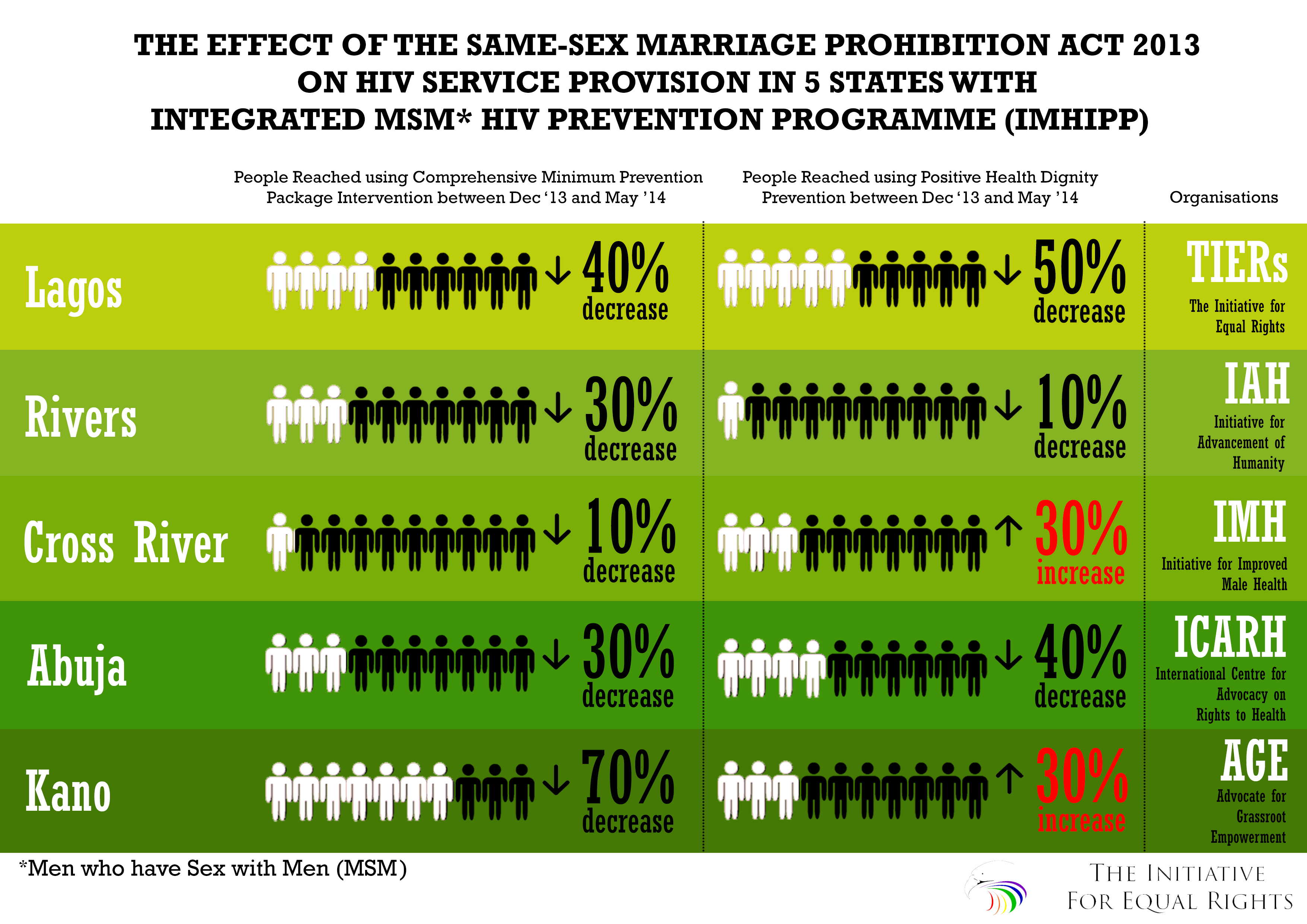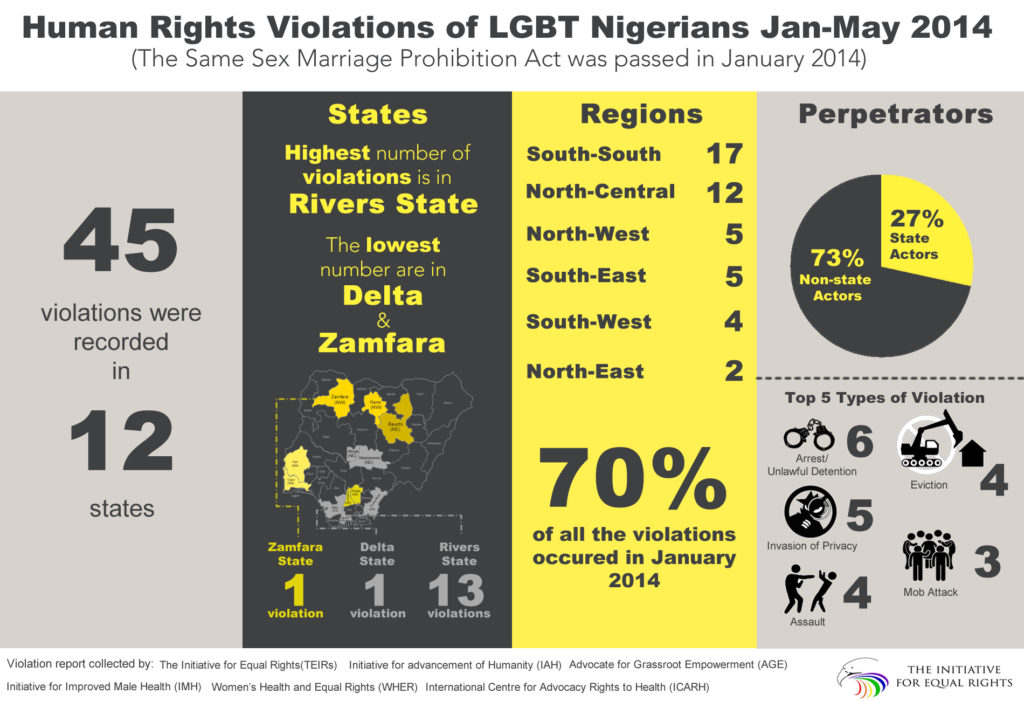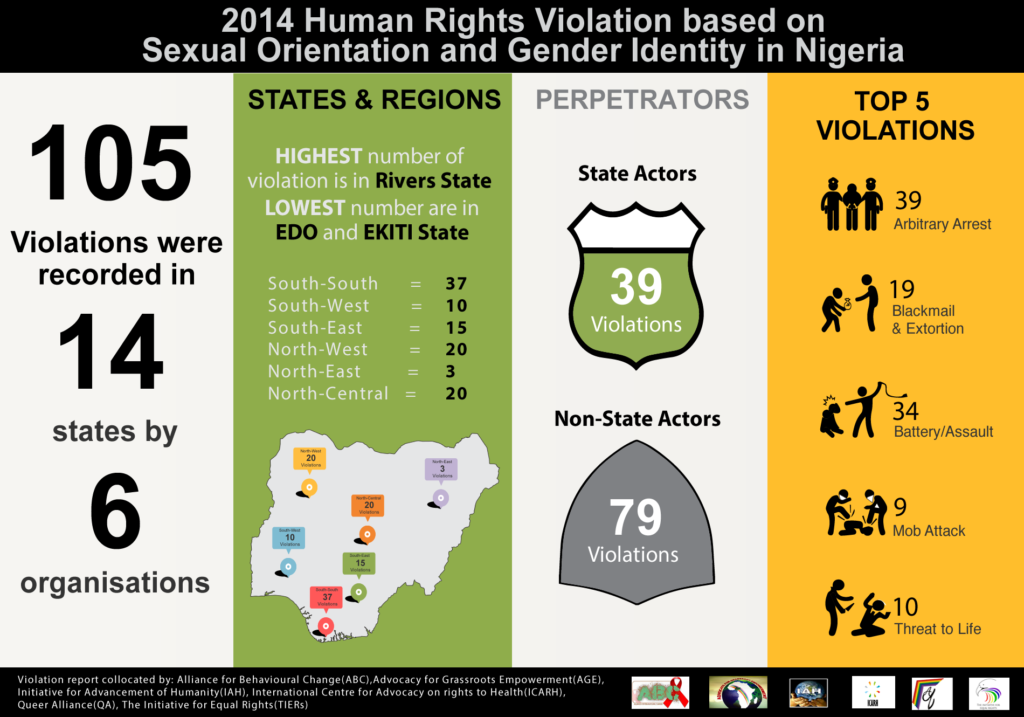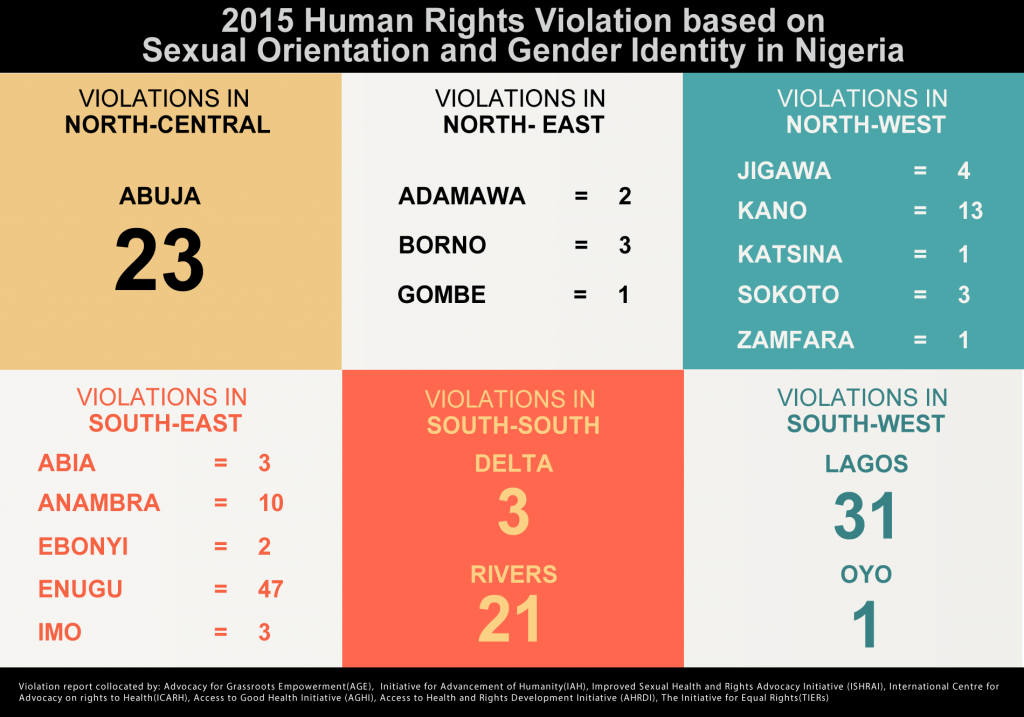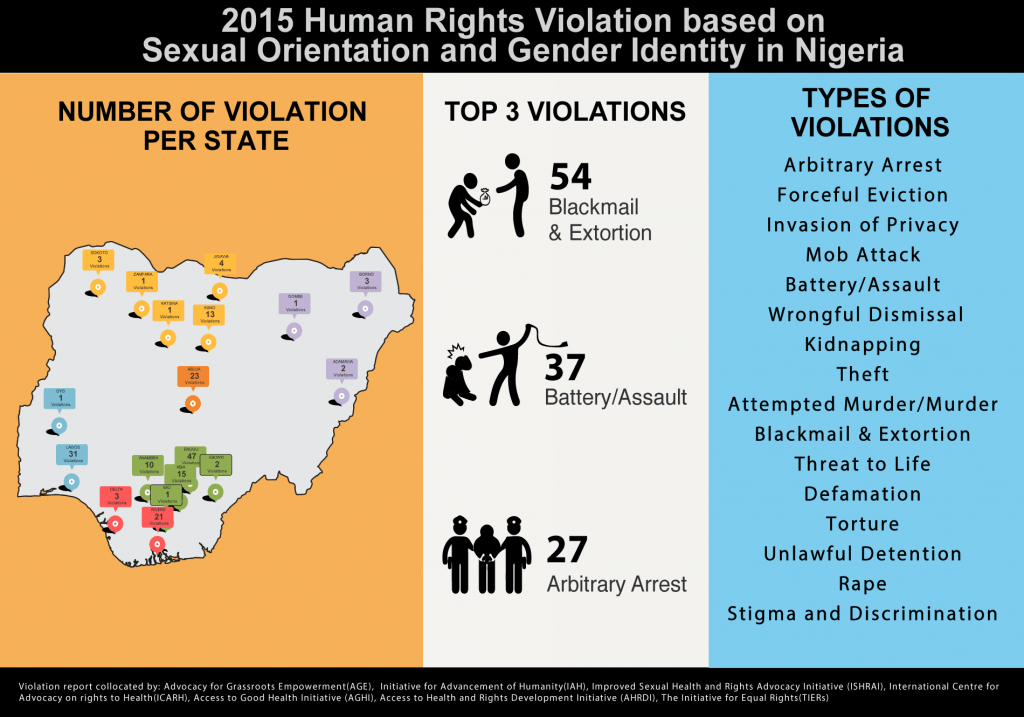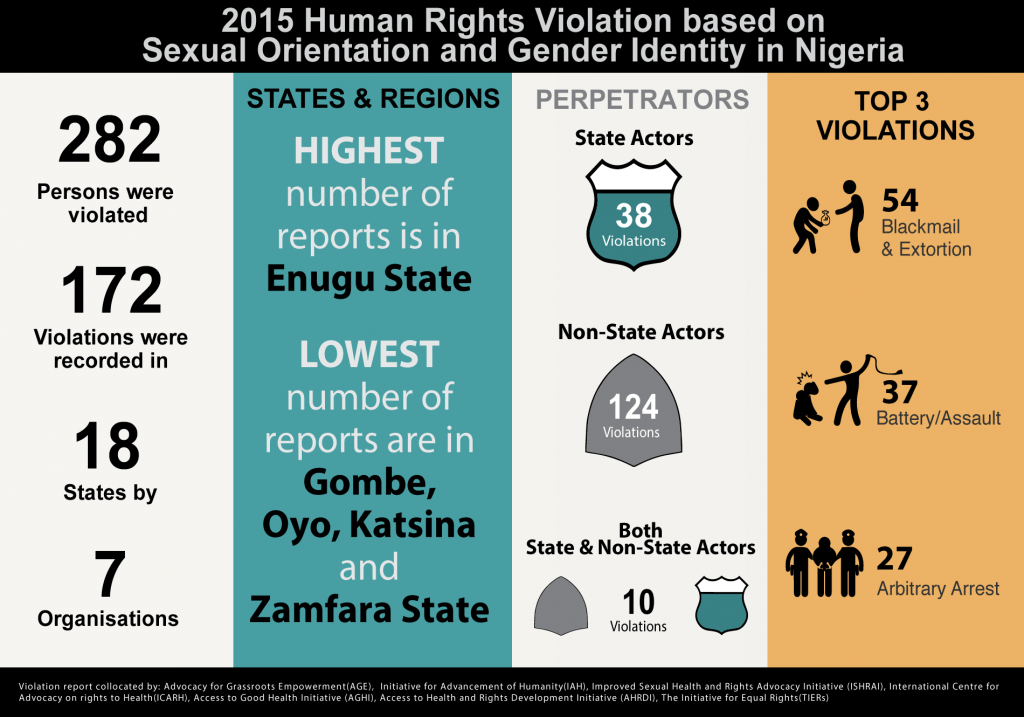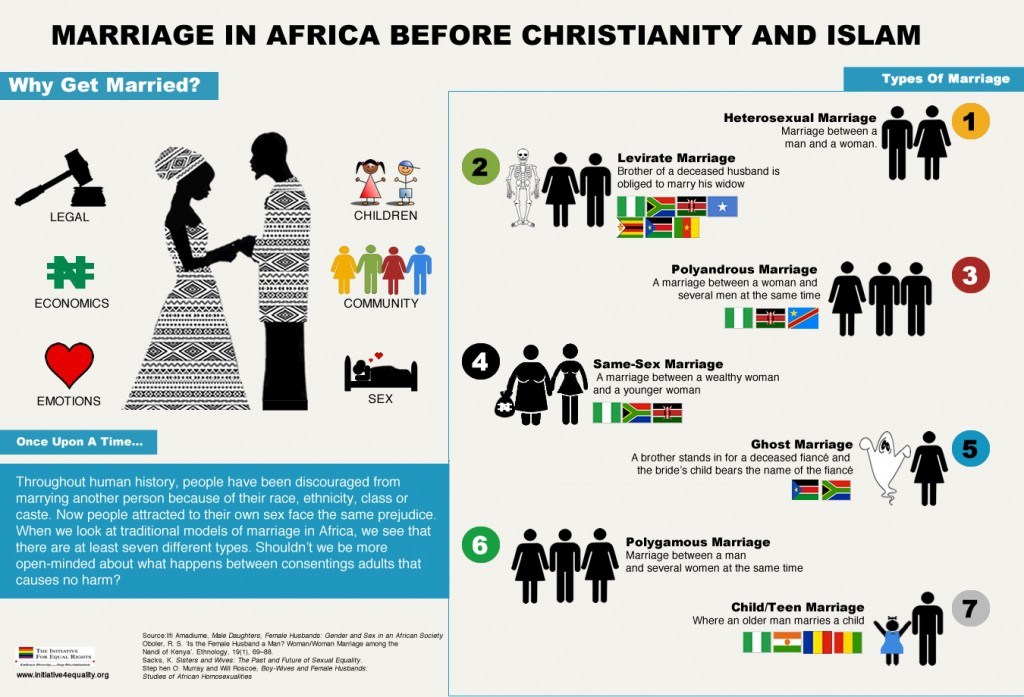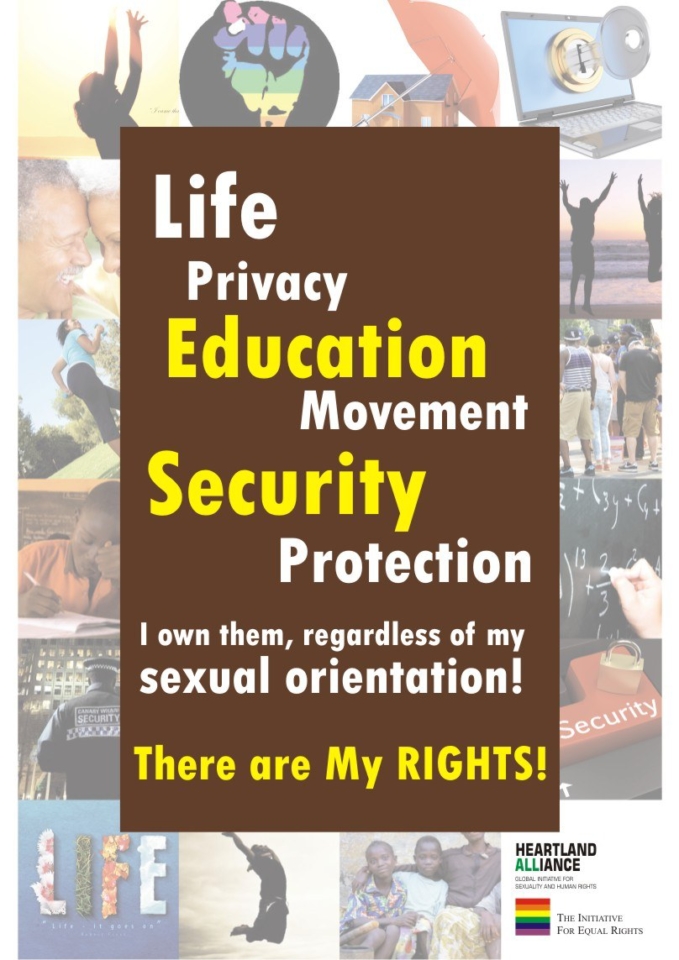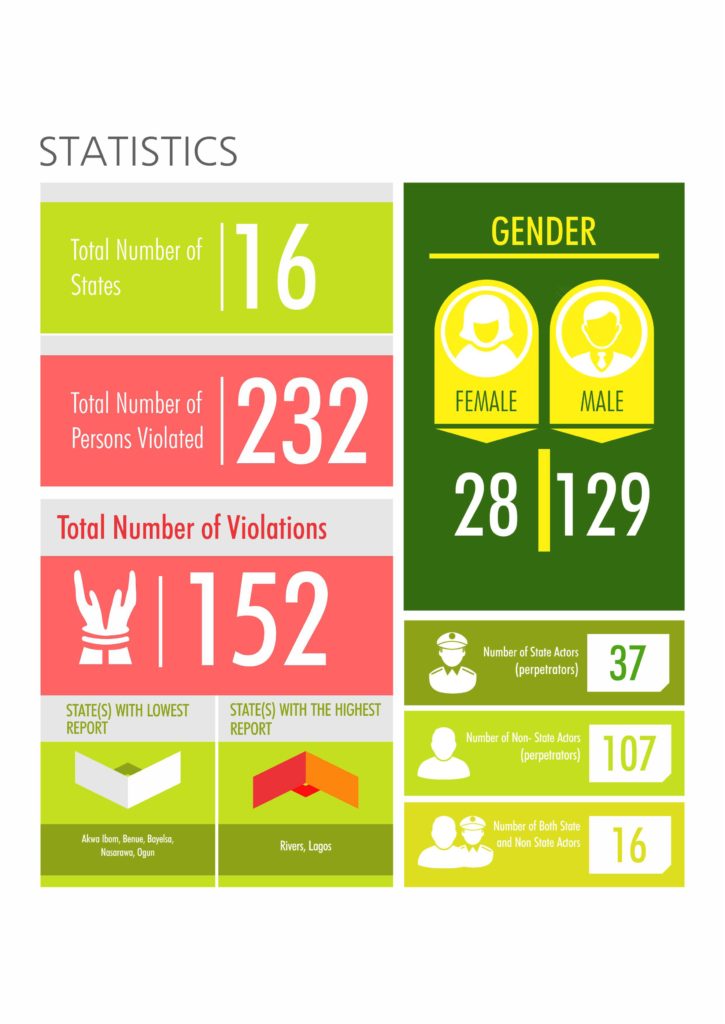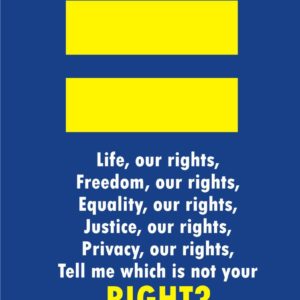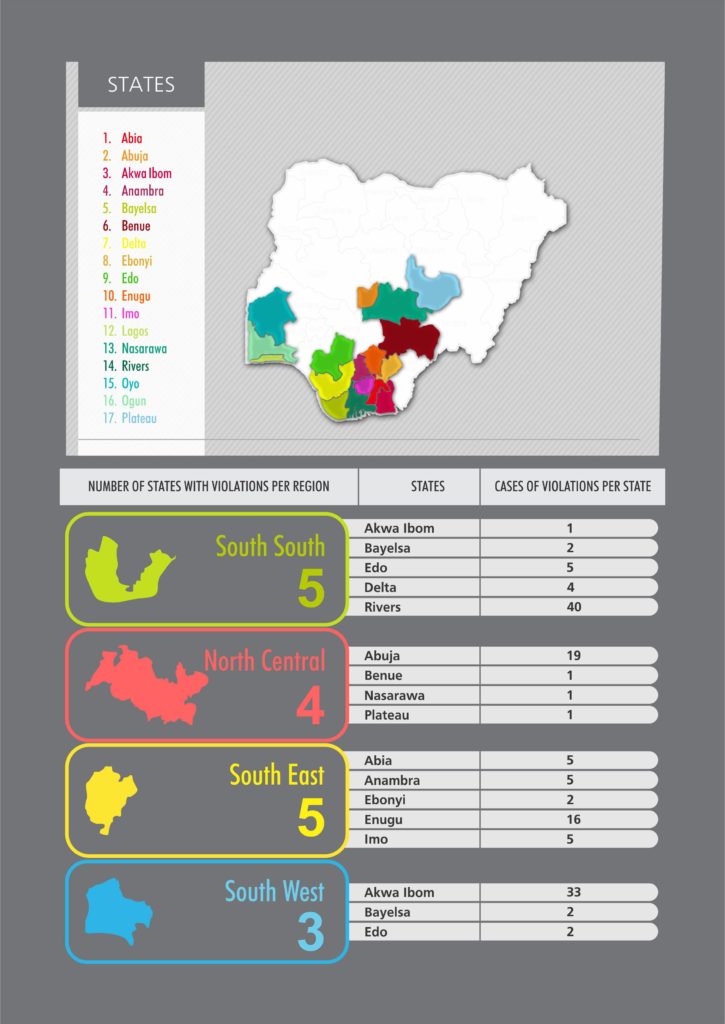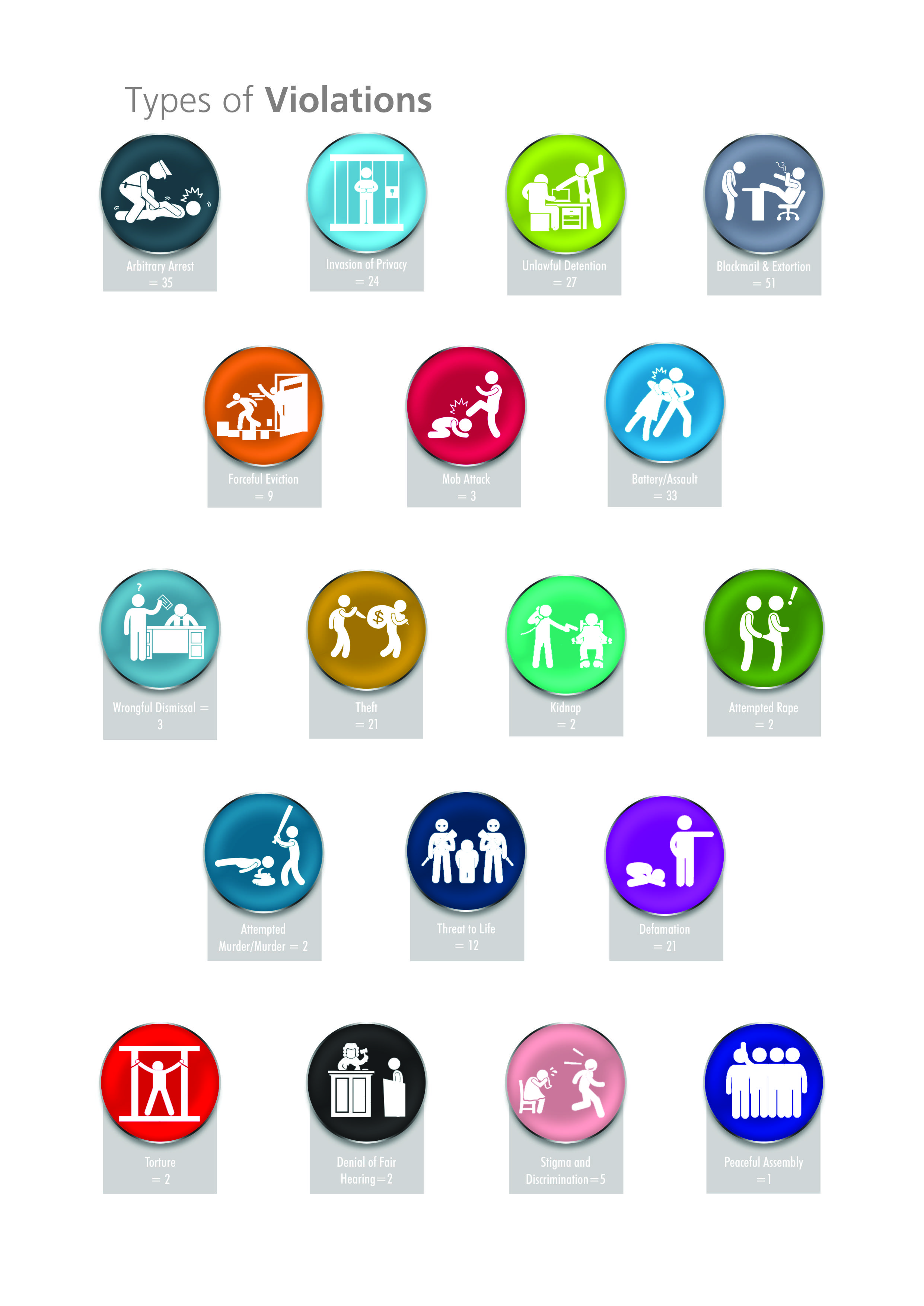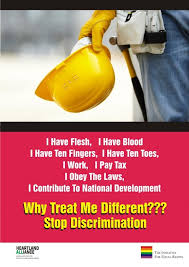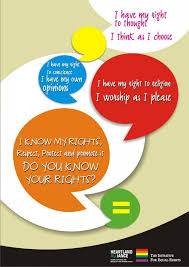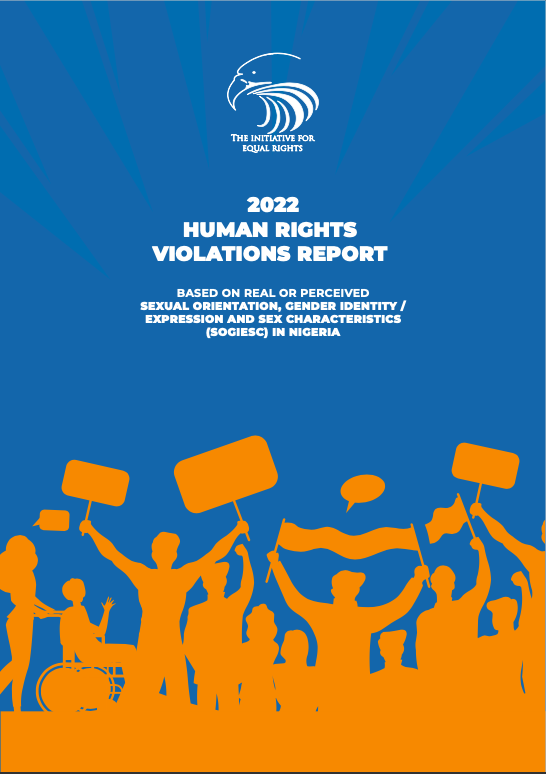
2022 Human Rights Violations Report
This 2022 human rights violations report documents how Nigeria’s current legal framework, championed by the SSMPA, endorses human rights violations against its citizens by deeming LGBTQI+ persons unworthy and undeserving of their fundamental human rights.
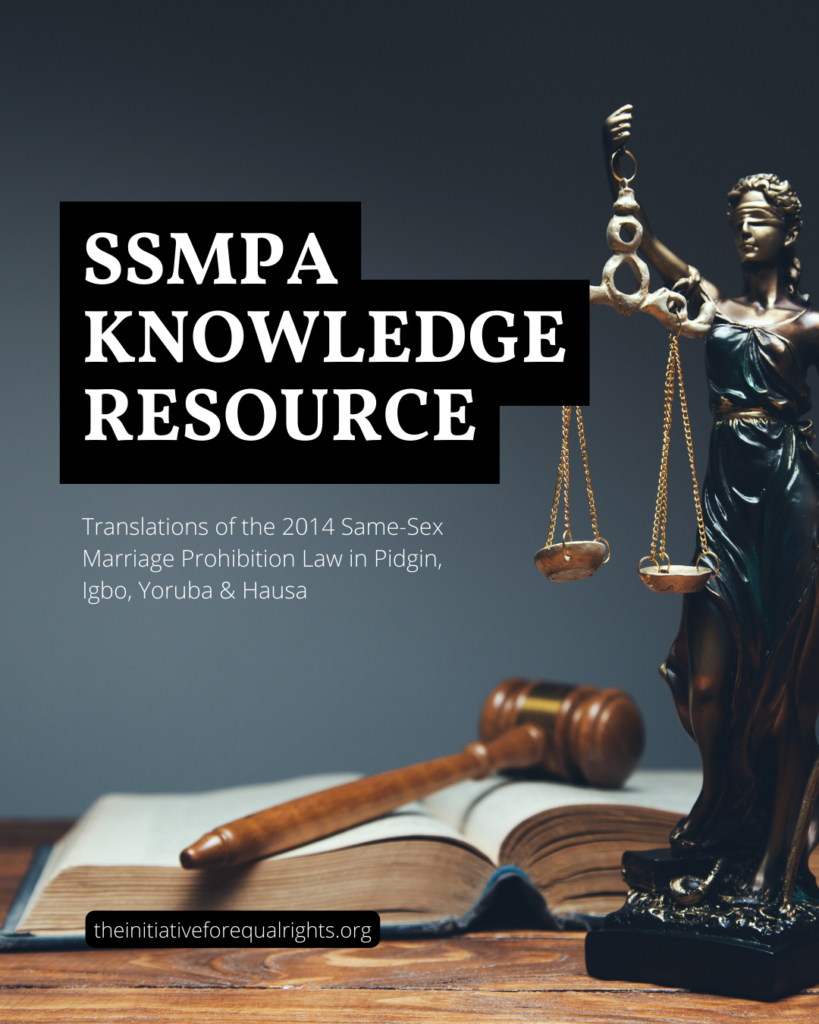
SSMPA Knowledge Resource
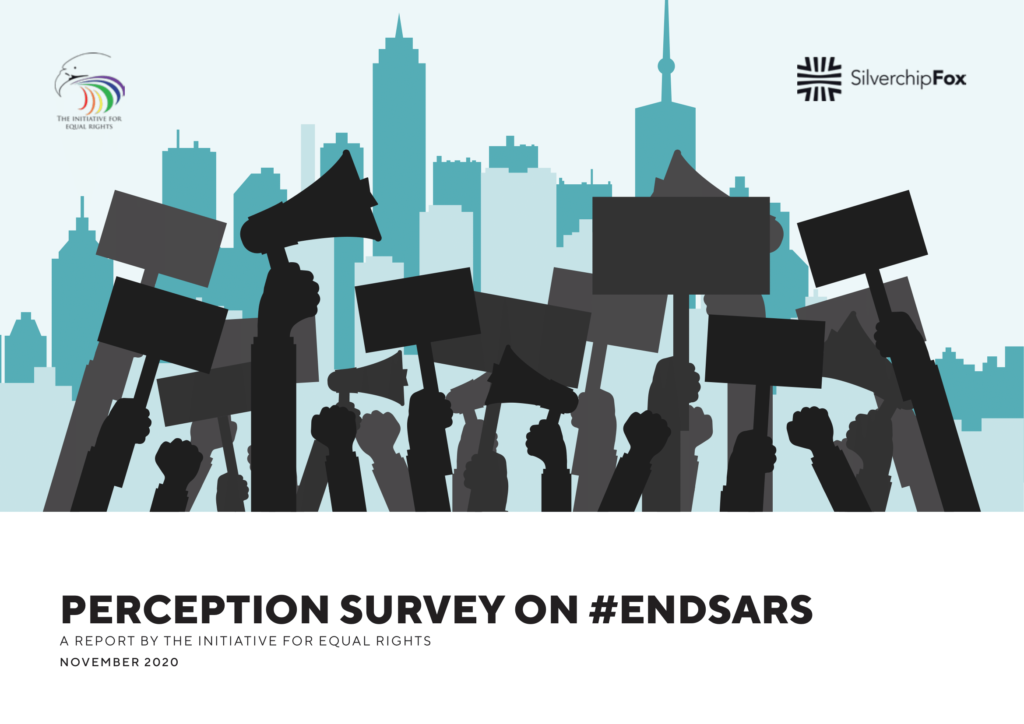
Perception Survey On #EndSars
The Initiative for Equal Rights commissioned SilverchipFox Consulting to conduct quantitative research with more than 300 respondents in different states to shed light on dominant perceptions of the #EndSARS campaign. Persons aged 18 and above were selected and categorized in a generational gap. Also, all 36 states were surveyed to be representative of the country’s diverse geographic, socioeconomic, tribal and ethnic contexts.
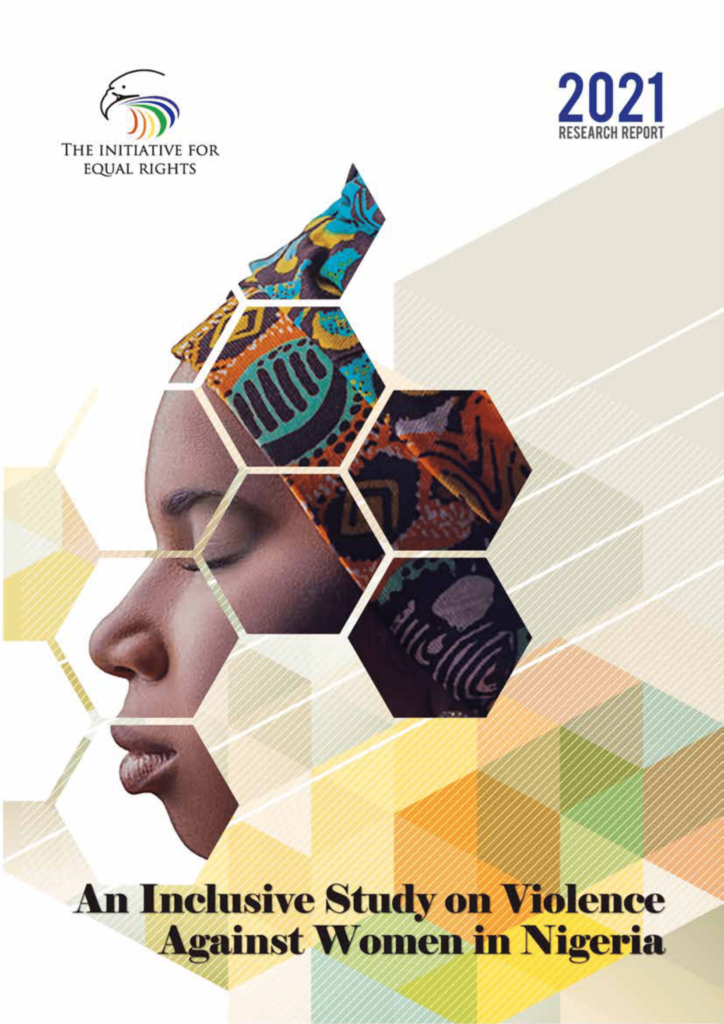
An Inclusive Study On Violence Against Women In Nigeria
This project was birthed from the perspective that no woman is free until all women are free; and of the recognition that efforts to tackle violence against women are only adequate if they collate the unique experiences of all groups of women. Under this seminal research project on violence against women in Nigeria, we have studied and analysed the forms of violence experienced by all women including heterosexual, lesbian, bisexual, queer, cis gender, trans gender, intersex women, female sex workers, and women living with disabilities.
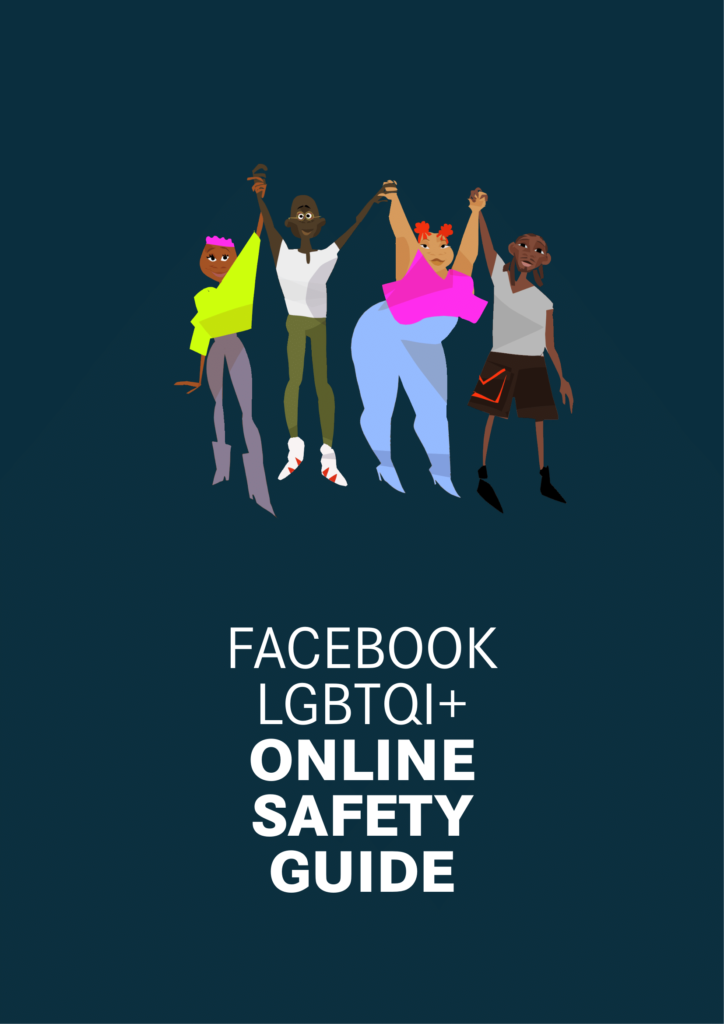
Facebook LGBTQI Online Safety Guide
It is important for us all to use our voices to fight against discrimination online and to practice compassion. In the face of online harassment or abuse, it is crucial to remember that you are not powerless. This online safety guide has been developed to assist LGBTQI+ persons, their families, friends and allies in accessing information that will help them safely navigate the digital space and protect themselves and others
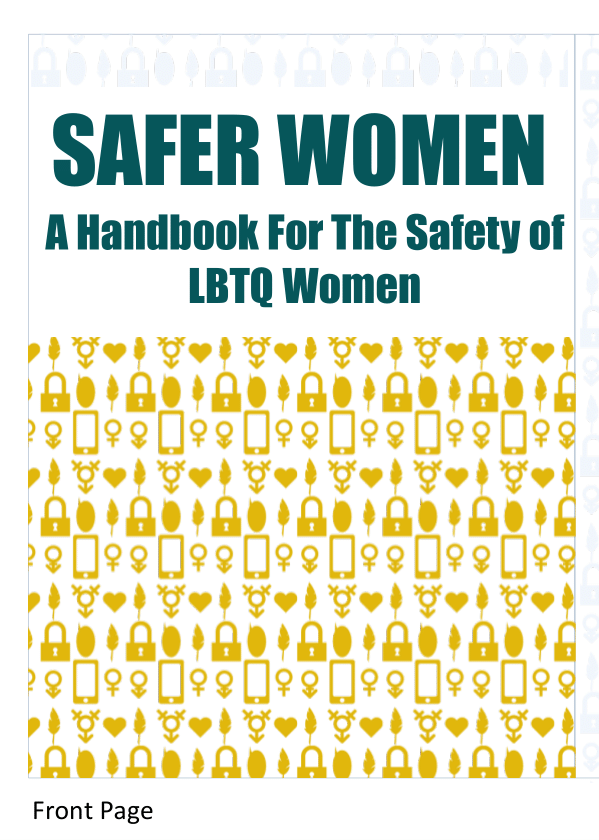
Safer Women
A short resource that offers LBTQ women strategies to use when meeting new people. The resource also provides tips on protecting yourself in situations of danger or violence .
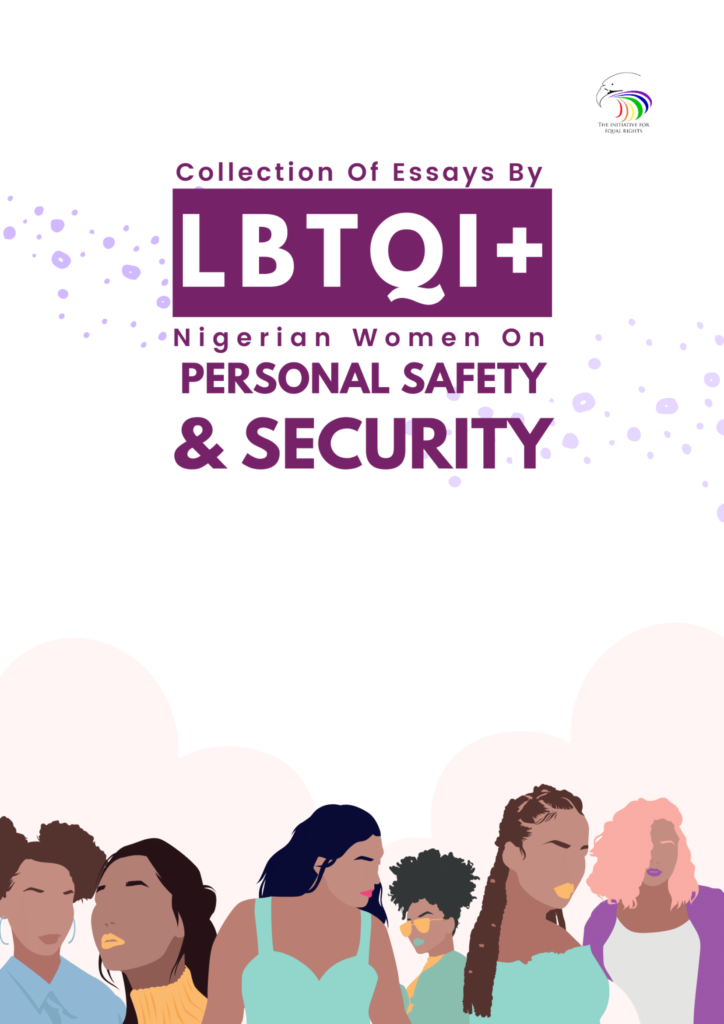
Collection of Essays by LBTQI+ Nigerian Women on Personal Safety and Security
As part of our campaign to raise awareness about violence against LBTQI+ women in Nigeria, we are pleased to have selected and edited six essays by Nigerian women, talking about how they navigate personal safety and security as queer women living in Nigeria.
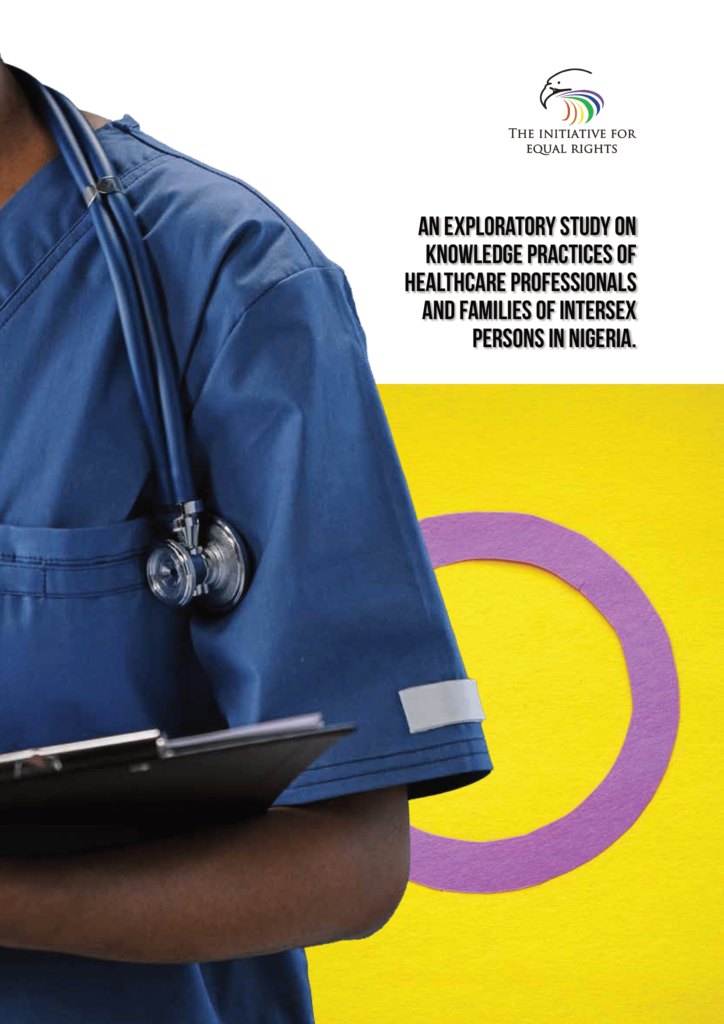
An Exploratory Study On Knowledge Practices Of Healthcare Professionals An Families Of Intersex Persons In Nigeria
This study aims to assess the knowledge, attitude, and practice of health care professionals and students on intersex issues and the experiences of families of intersex persons in Nigeria.
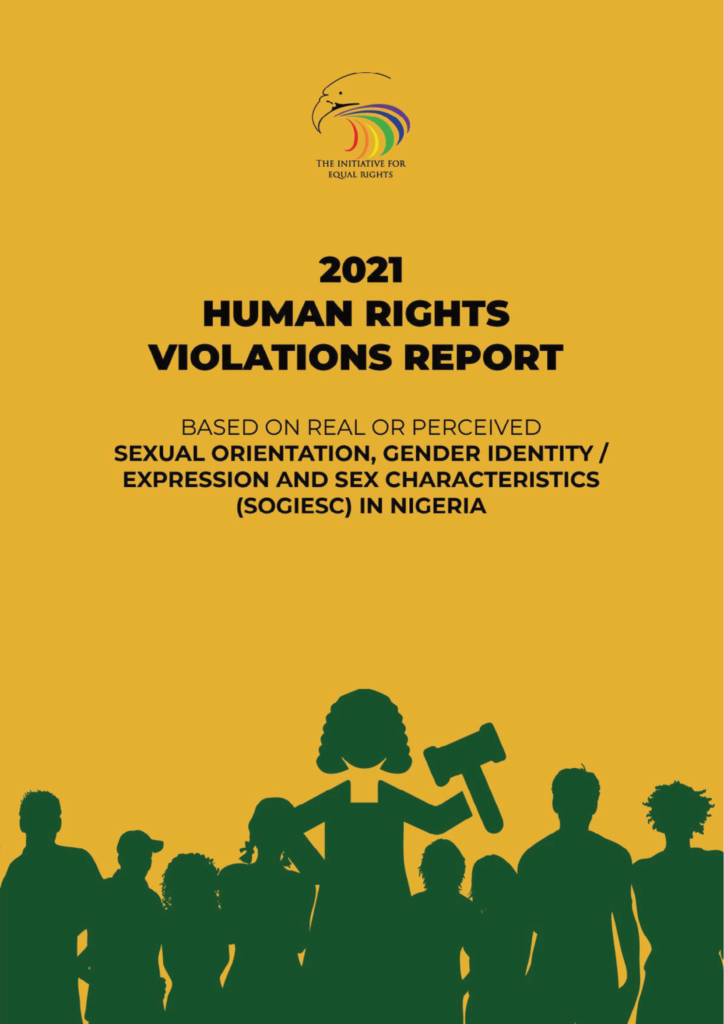
2021 Human Rights Violations Report
This 2021 human rights violations report documents how Nigeria’s current legal framework, championed by the SSMPA, endorses human rights violations against its citizens by deeming LGBTQI+ persons unworthy and undeserving of their fundamental human rights.
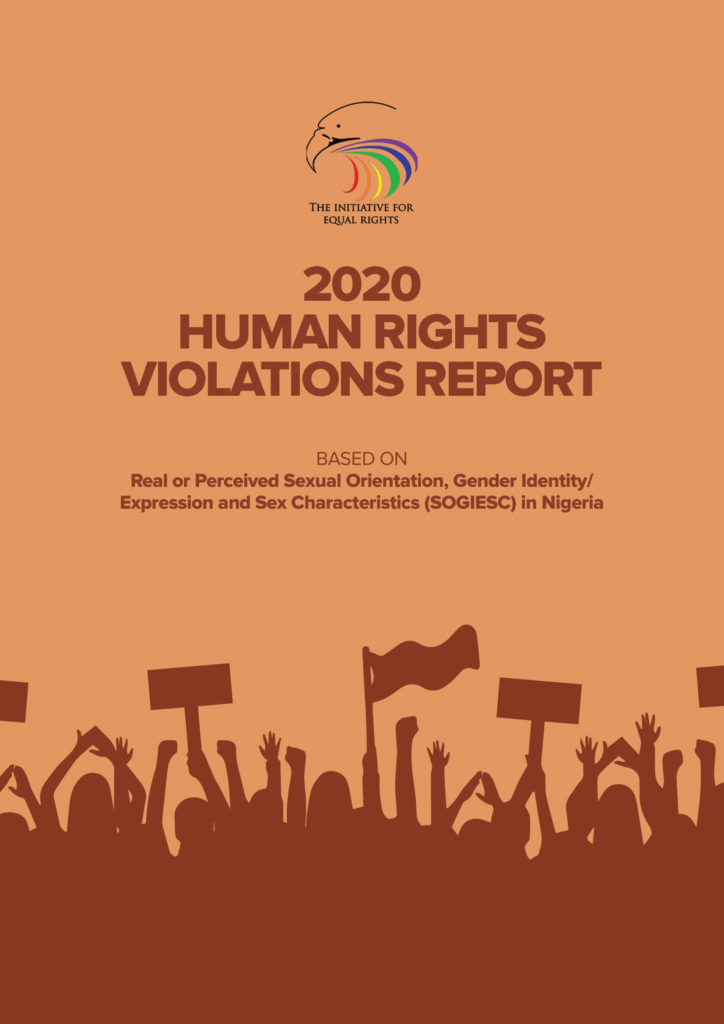
2020 Human Rights Violations Report
This report documents the ways Nigeria’s current legal framework, aided by the SSMPA, endorses human rights violations on its own citizens by deeming LGBTQI persons unworthy and undeserving of their fundamental human rights.
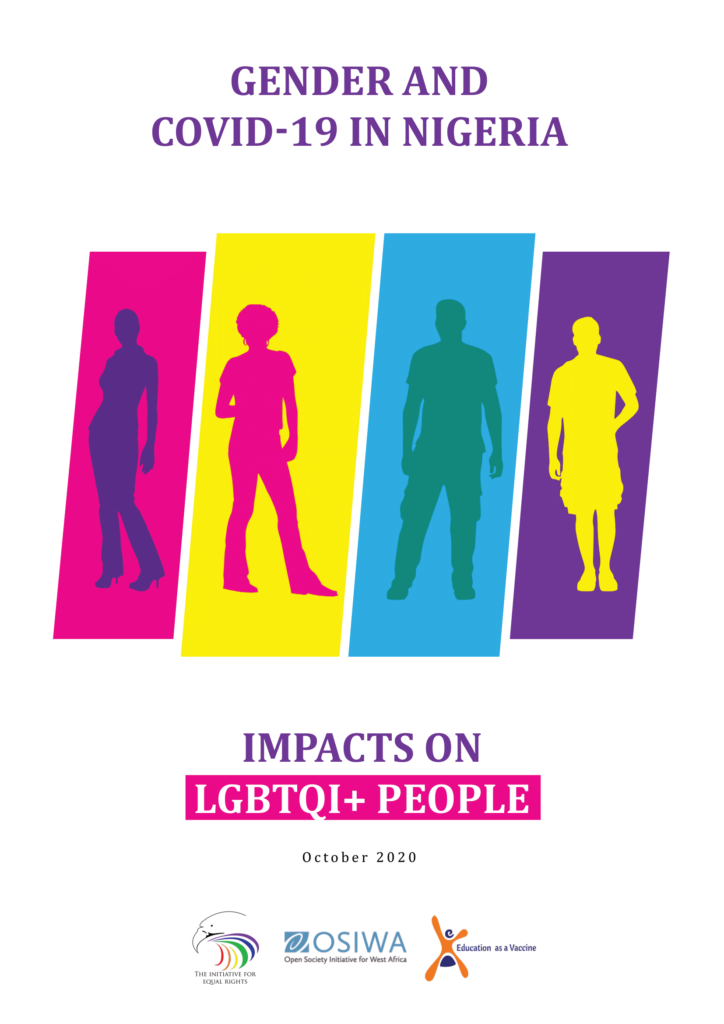
GENDER AND COVID-19 IN NIGERIA
The COVID-19 pandemic has affected everybody in Nigeria to some extent, but it has had differential impacts on people from social groups which generally face social exclusion. This paper outlines how the pandemic has exacerbated discrimination, exclusion, and violence against LGBTQI people and what needs to be done.
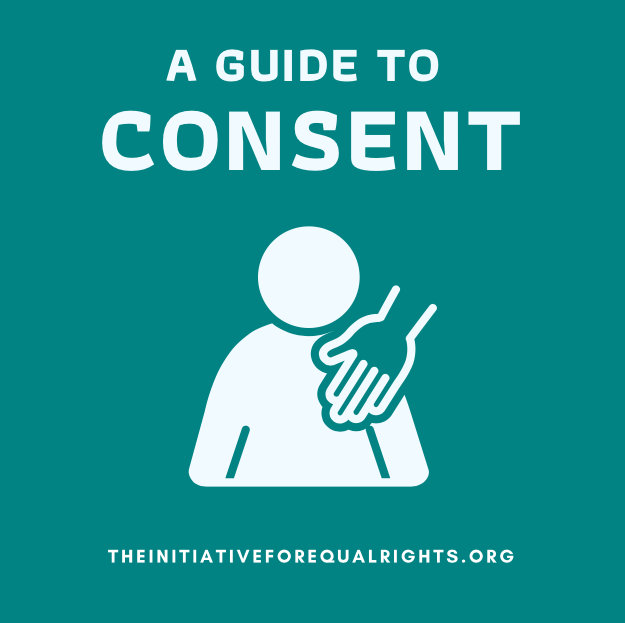
A Guide To Consent
For Sexual Assault Awareness Month, we have put together a useful and easy-to-understand guide to understand consent. Consent is absolutely necessary to ethically and legally have sex. Understanding what exactly consent is can help prevent sexual assault and sexual violence.
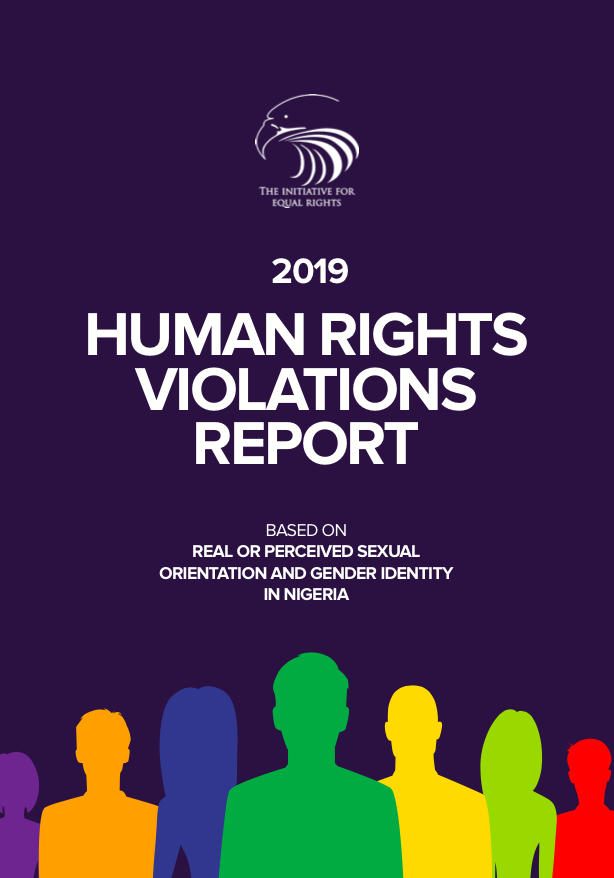
2019 Human Rights Violations Report Based on Real or Perceived Sexual Orientation or Gender Identity
The 2019 report documents the ways in which Nigeria’s current legal framework, aided by the SSMPA, endorses human rights violations on its own citizens by deeming LGBTQI persons unworthy and undeserving of their fundamental human rights. For 2019, 330 violations based on real or perceived sexual orientation or gender identity were recorded.
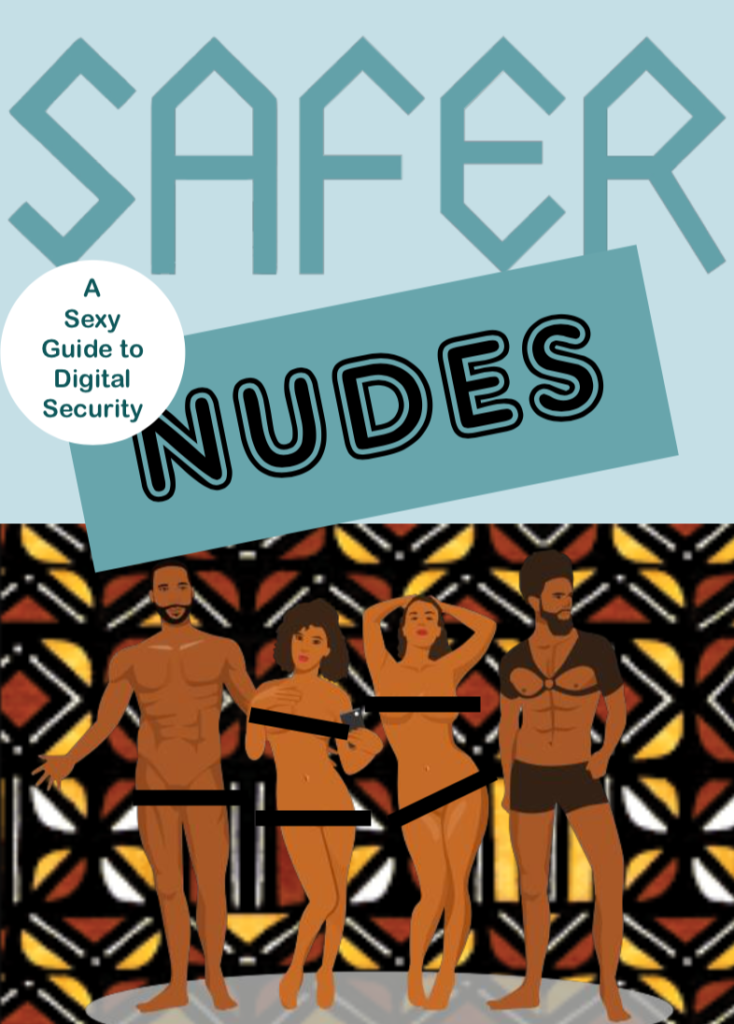
Safer Nudes: A Sexy Guide to Digital Security
This guide by Safer Nudes Nigeria will help you navigate the sometimes confusing “should-I-shouldn’t-I” dilemma of sending nudes. It also contains tips on what apps to use when sending nudes, how to conceal your face or identifiable body marks, what laws work in your favor, and what organizations to call when in need of help. This guide is useful to everyone so be generous and share with friends: sharing is caring
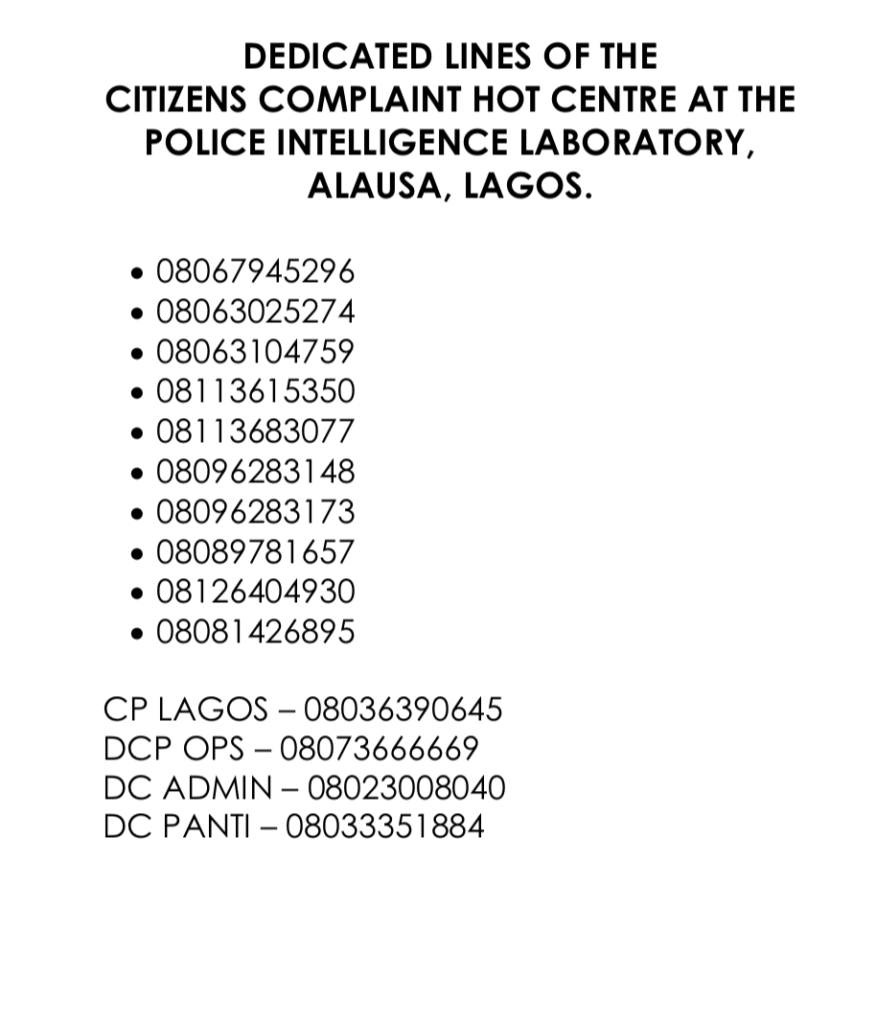
Dedicated Lines of the Citizens Complaint Hot Centre at the Police Intelligence Laboratory, Alausa, Lagos
Here are the hotlines for persons in Lagos to report police misconduct, officers who demand bribes or money to buy stationeries when writing a statement or recording a complaint.
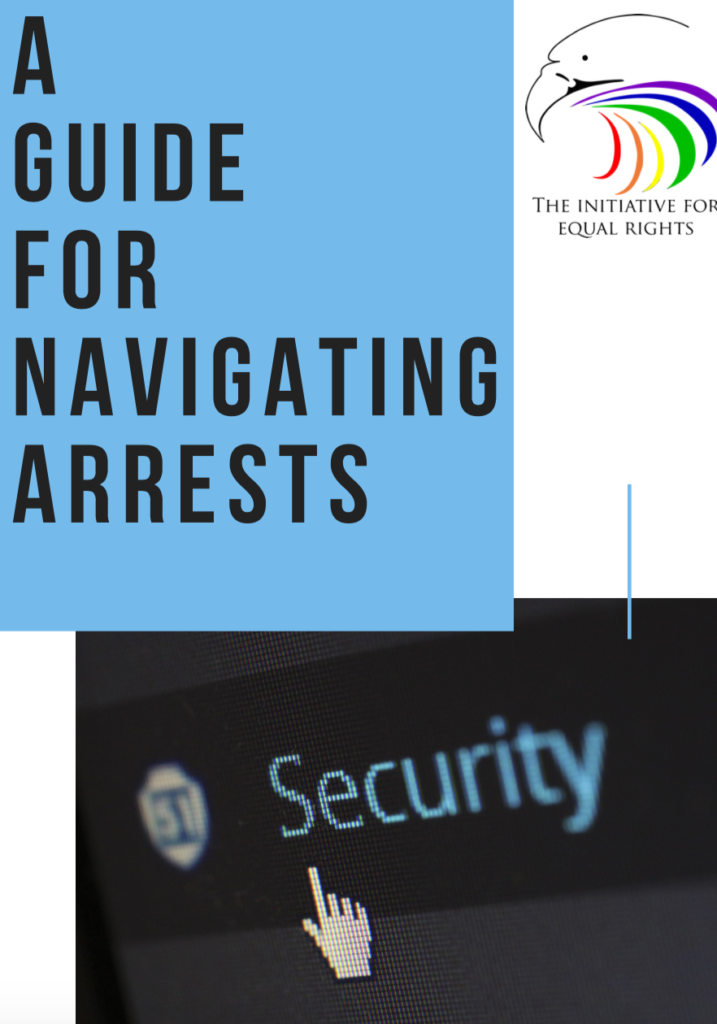
A Guide to Navigate Arrests
This guide teaches you what to do in the instance of an arrest. It also distinguishes between lawful and unlawful arrests.
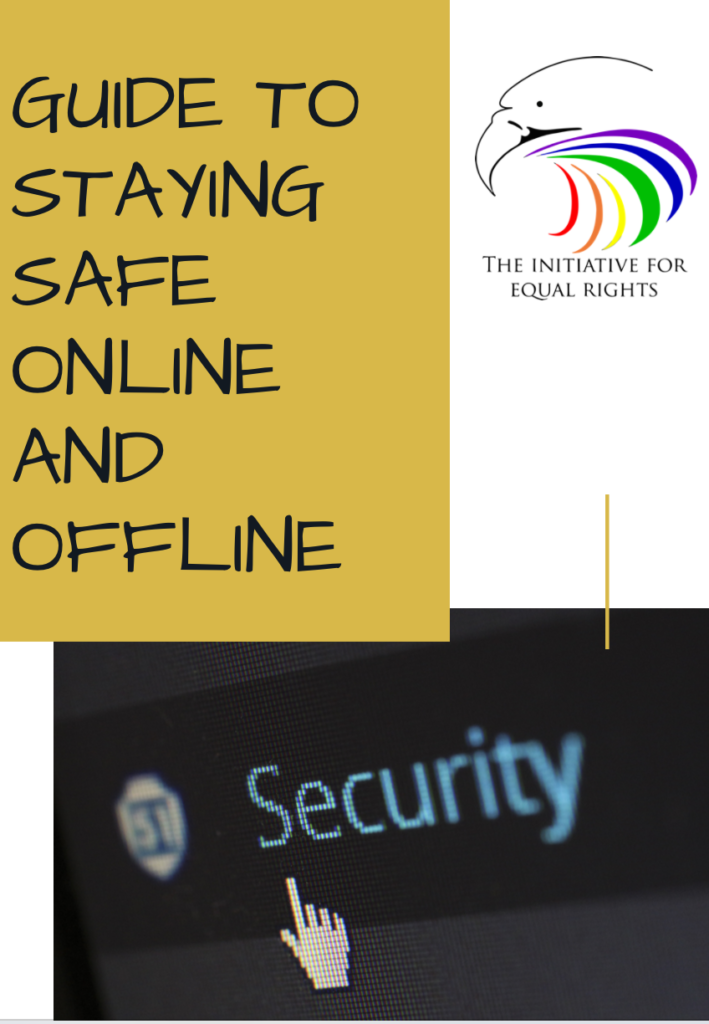
A Guide to Staying Safe Online and Offline
This robust guide will offer you tips on how to stay safe online and offline, to avoid falling victim to kito, blackmail, or attacks.
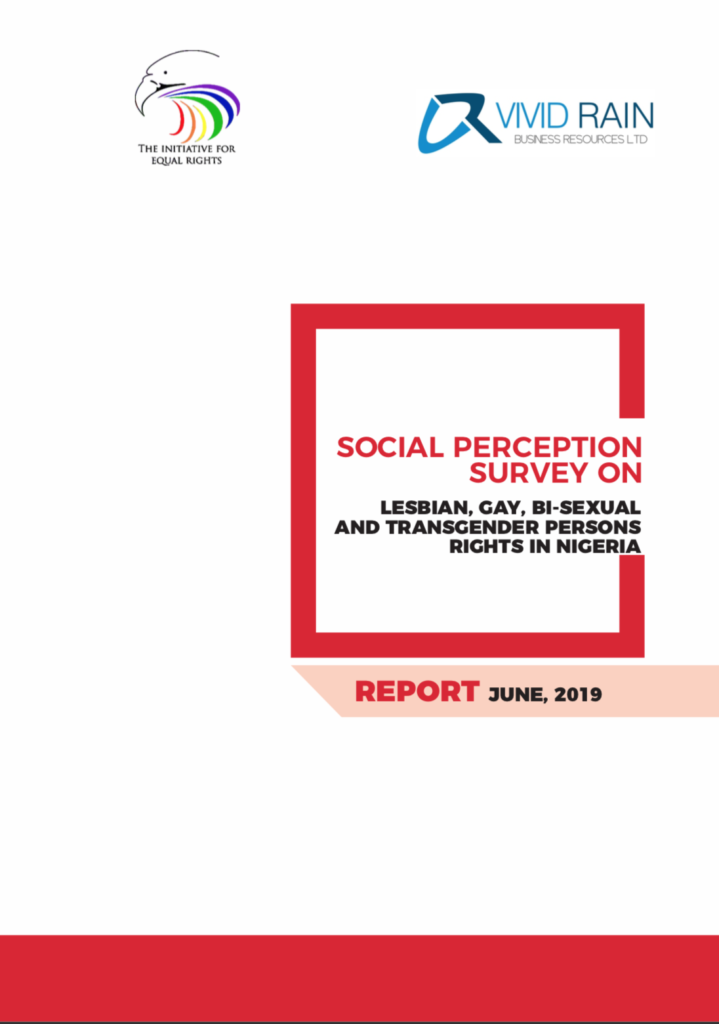
2019 Social Perception Survey On Lesbian, Gay, Bisexual and Transgender Rights in Nigeria
The survey gathers Nigerians’ perceptions of Lesbian, Gay, and Bisexual persons. This year’s results show a gradual increase in acceptance of LGBT+ persons. While most Nigerians still view LGBT rights negatively, the public seems to be moving towards a higher level of acceptance and tolerance. It also shows that young people are more accepting of LGBT people than the older generation.
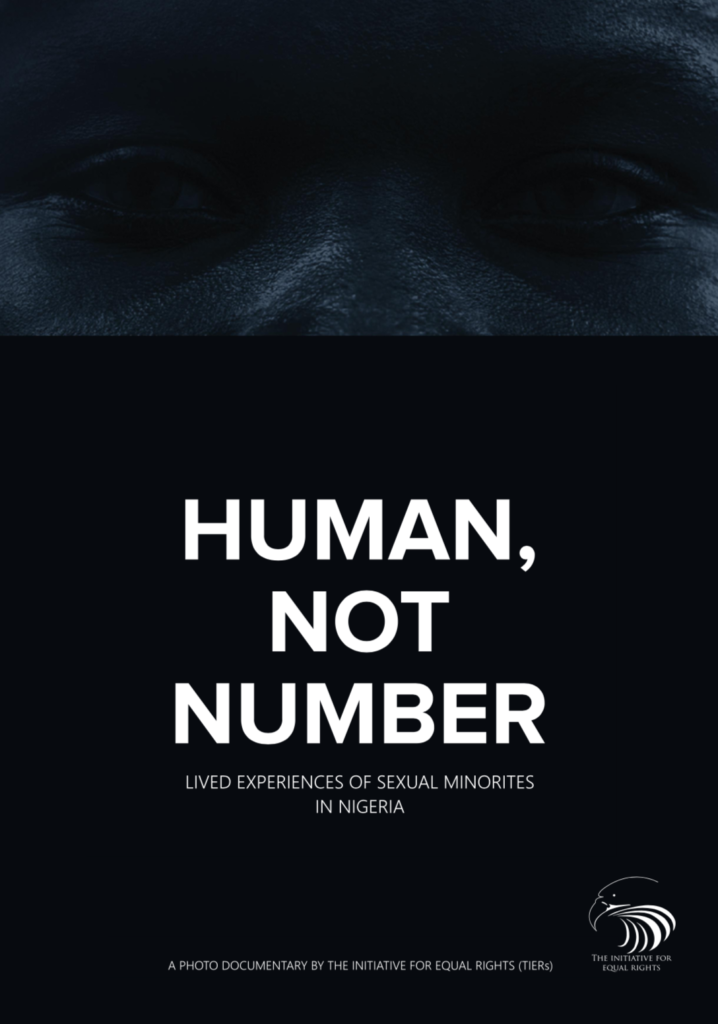
Human, Not Number: Lived Experiences of Sexual Minorities in Nigeria
This advocacy project is directed at getting people to understand that LGBTQI persons are human beings who deserve to walk the streets of their county without fear of harassment, discrimination, violence or in extreme cases, death. With this photo documentary, we aim to humanize the realities and lives of the victims of such violations and encourage others to humanize LGBTQI persons.
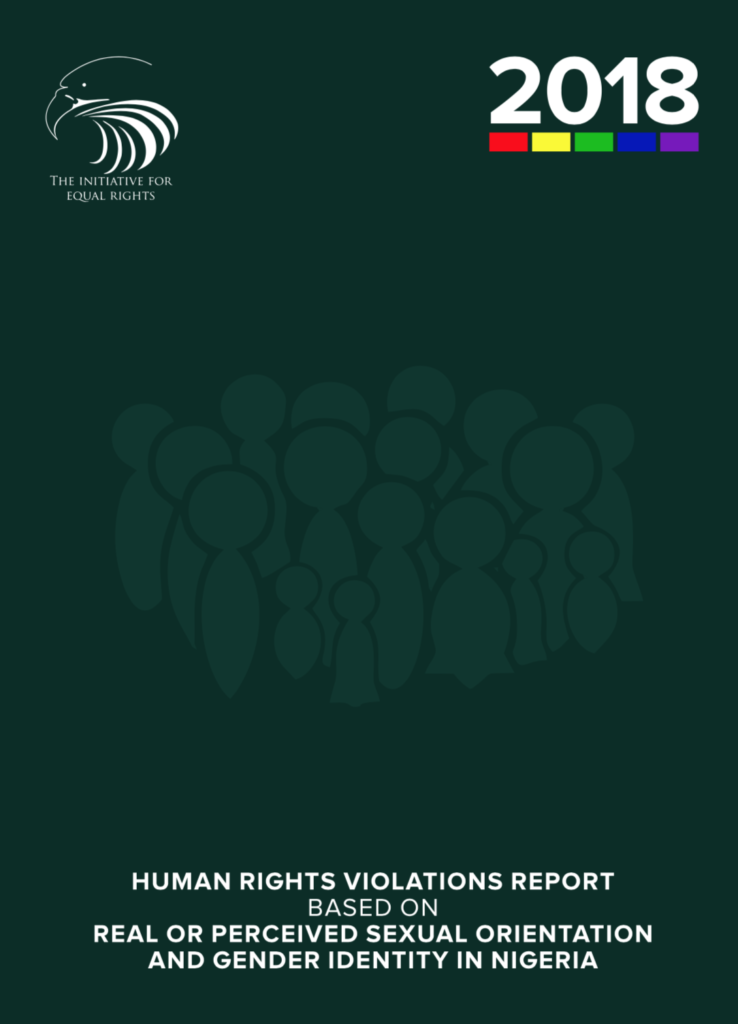
2018 Human Rights Violations Report based on Sexual Orientation and Gender Identity in Nigeria
Nigeria’s deliberate disregard for fundamental human rights continues to degrade the existence of real or perceived sexual orientation and gender identity as detailed in our 2017 Report.
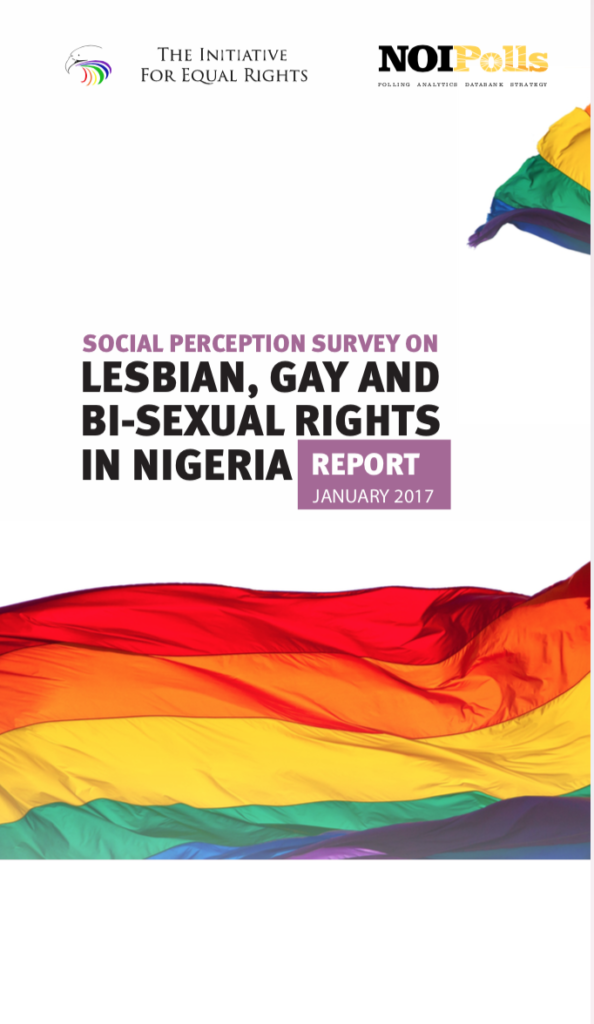
2017 Human Right Violation Reports Based On Sexual Orientation & Gender Identity Expression In Nigeria
Blatant violations of fundamental human rights continue to plague those who self-identify or are perceived as lesbian, gay, bisexual, trans, queer and/ or intersex (LGBTQI).
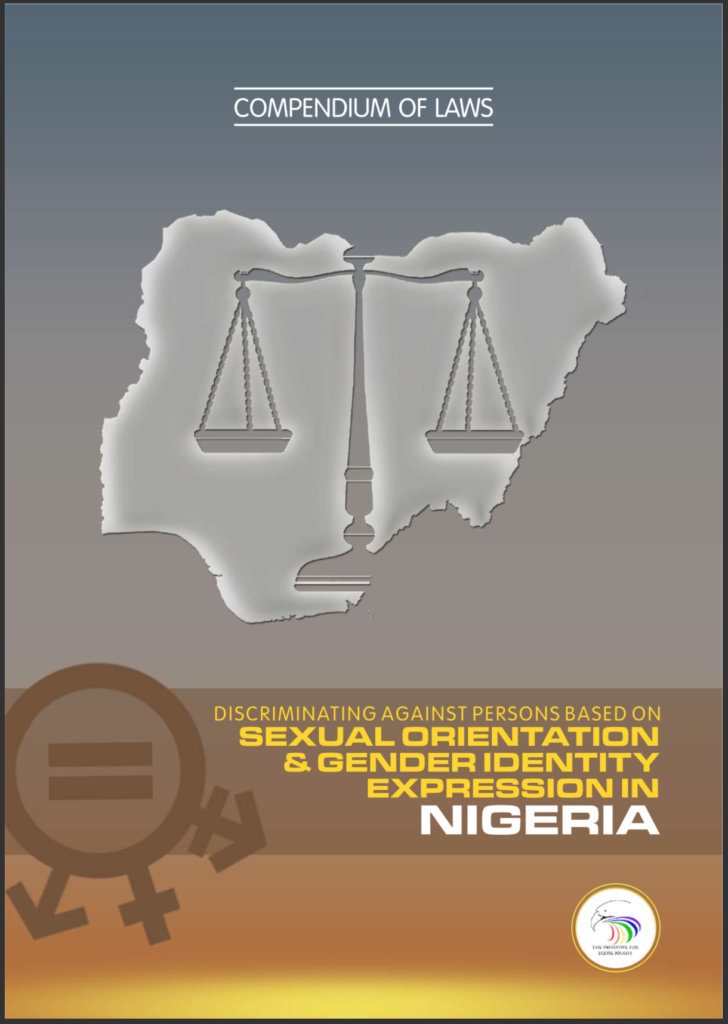
Compendium Of Law – Discrimination Against Persons On Sexual Orientation & Gender Identity Expression In Nigeria
This report was principally authored by Ayodele Sogunro with research and editorial supports from Dele Fatunla, Omolara Oriye and Olumide Makanjuola. The project was conceived and funded by The Initiative for Equal Rights
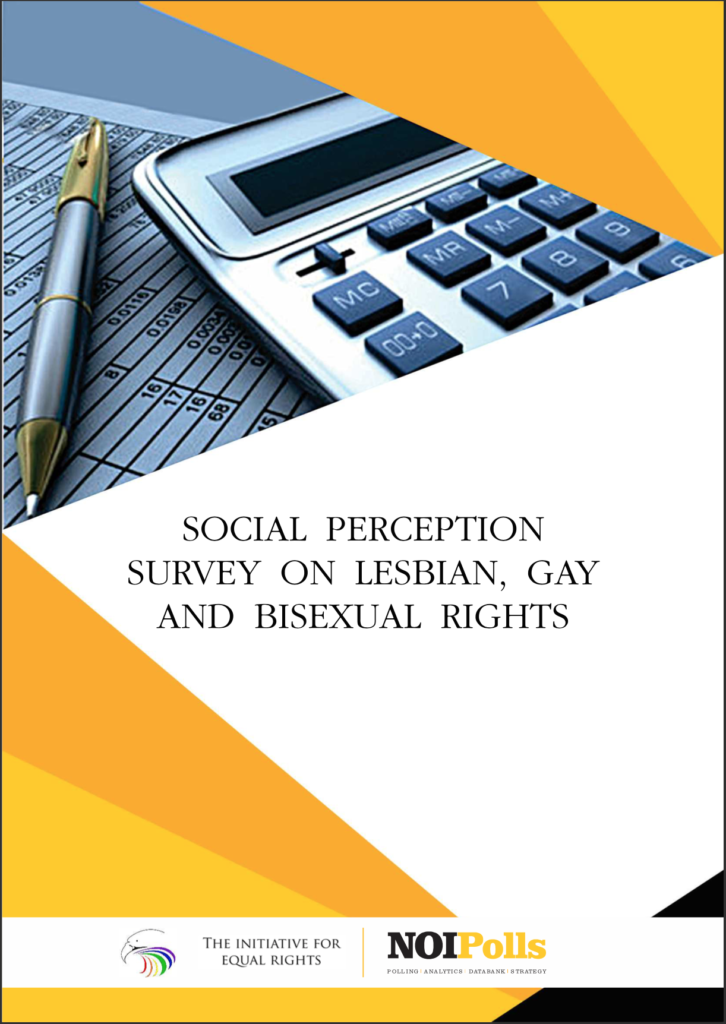
2017 Social Perception Survey On Lesbian, Gay And Bisexual Rights in Nigeria
The survey gathers Nigerians’ perceptions of Lesbian, Gay, and Bisexual persons. The survey is the third in a series of polls. The first was conducted in 2013 and the second in 2015. This document presents findings from the 2017 polls, and where necessary, draws a comparison with earlier polls.
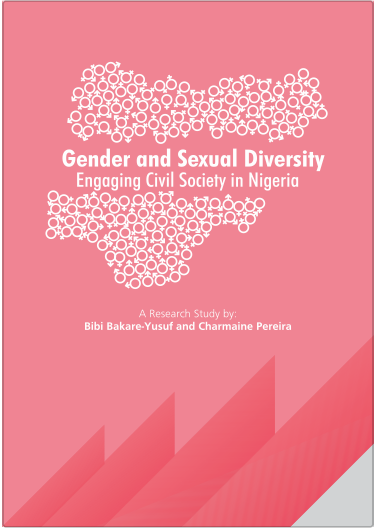
Gender and Sexual Diversity-Engaging Civil Society in Nigeria Research Report
Research on gender in Nigeria has not often examined issues of sexuality. Over the last decade and a half, however, there has been an increasing emphasis in Africa feminist scholarship and activism on the importance of understanding sexualities and gender. Our research begins with an overview of the varying ways in which gender and sexuality have been configured at different times and in different places in Nigeria.
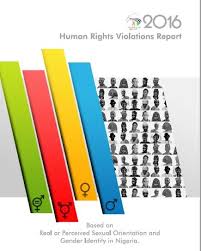
2016 Report on Human Rights Violations
The Levels of Violence, discrimination and inhuman and degrading treatment of LGBTQI persons described in our 2015 report still persists. Although all Nigerian citizens find it difficult to ensure the promotion and protection of their rights and to access basic social services, members of the LGBTQI communities face further…
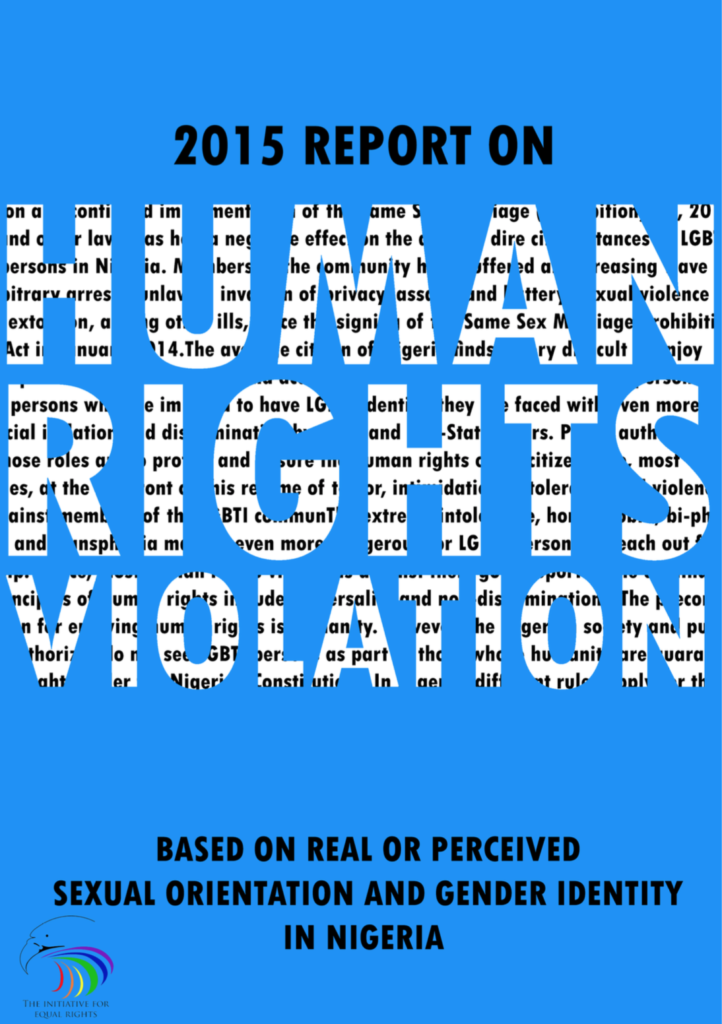
2015 Report on Human Rights Violations
The violence and discrimination against LGBTI persons continue in Nigeria. The promulgation and continued implementation of the Same Sex Marriage (Prohibition) Act, 2013 and other laws have had a negative effect on the already dire circumstances of LGBTI persons in Nigeria.
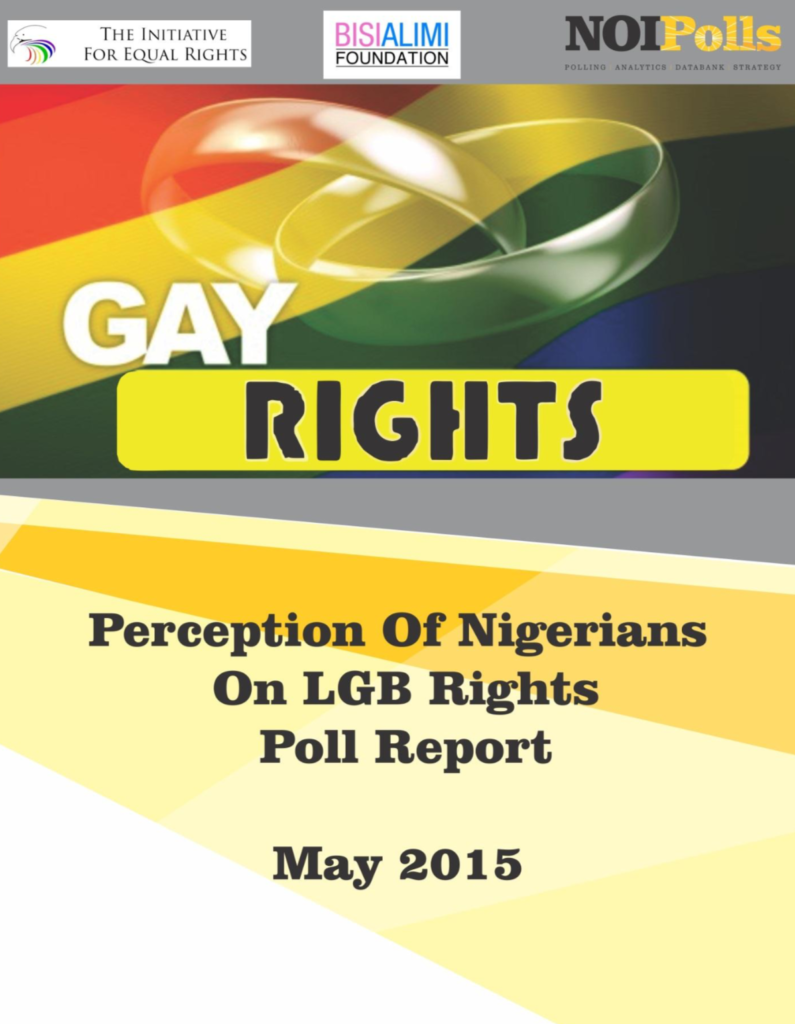
2015 Social Perception Survey on Lesbian, Gay and Bisexual Rights
In the second biennial poll, we find out the current attitude of Nigerians towards LGB Issues and persons.

My Human Rights Booklet
Human Rights are for all regardless of sexual orientation or country of residence.
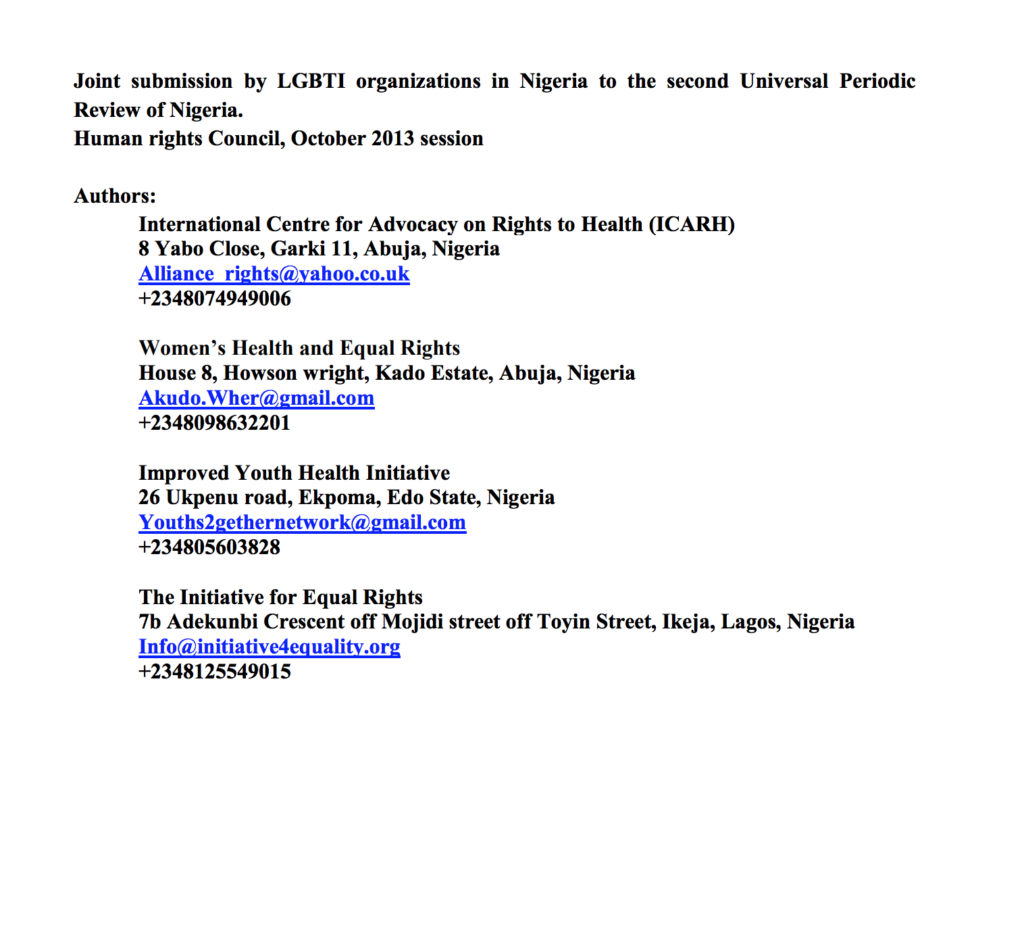
LGBT Human Rights situation in Nigeria – 2013
Over the past four years, the human rights situation in Nigeria has been of concern due to lack of adherence of Nigerian State to international human rights instruments. Minority groups including Lesbian, Gays, Bisexuals, Transgender and Intersexual (LGBTI) individuals, suffer the severe implications of the human rights situation in the country.
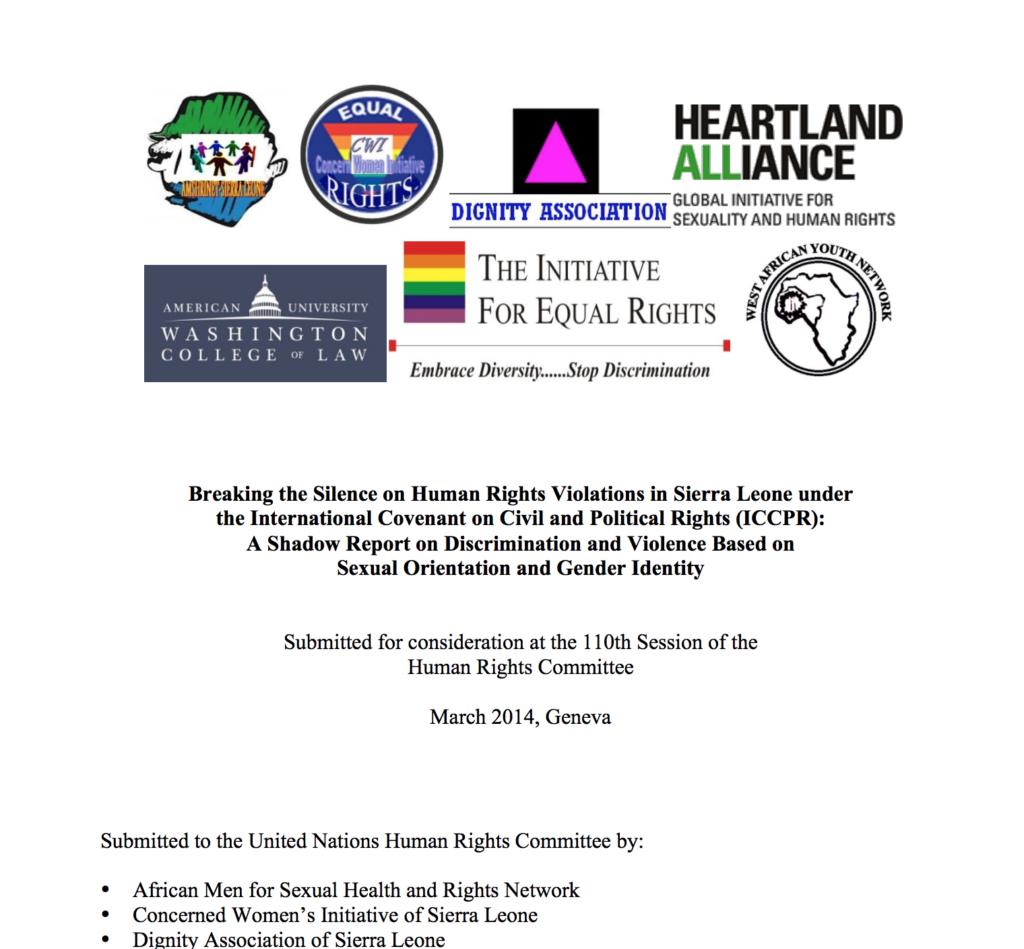
Sierra Leone Shadow Report
This report is a joint submission by Dignity Association (Freetown, Sierra Leone), Concerned Women’s Initiative (Freetown, Sierra Leone), West African Youth Network (Freetown, Sierra Leone), Action for Men’s Sexual Health and Rights Network (Johannesburg, South Africa), The Initiative for Equal Rights (Lagos, Nigeria).
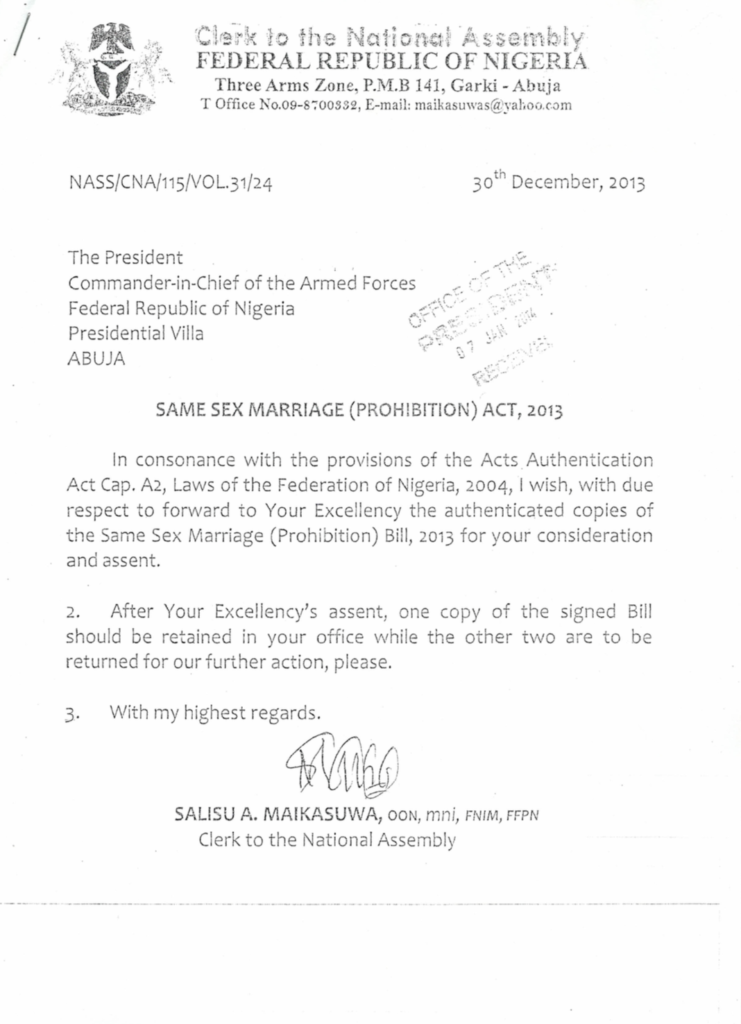
Nigeria Same-Sex Marriage (Prohibition) Act, 2013
The promulgation and continued implementation of the
Same-Sex Marriage (Prohibition) Act, 2013 and other laws have had a negative effect on the already dire circumstances of LGBTI persons in Nigeria.
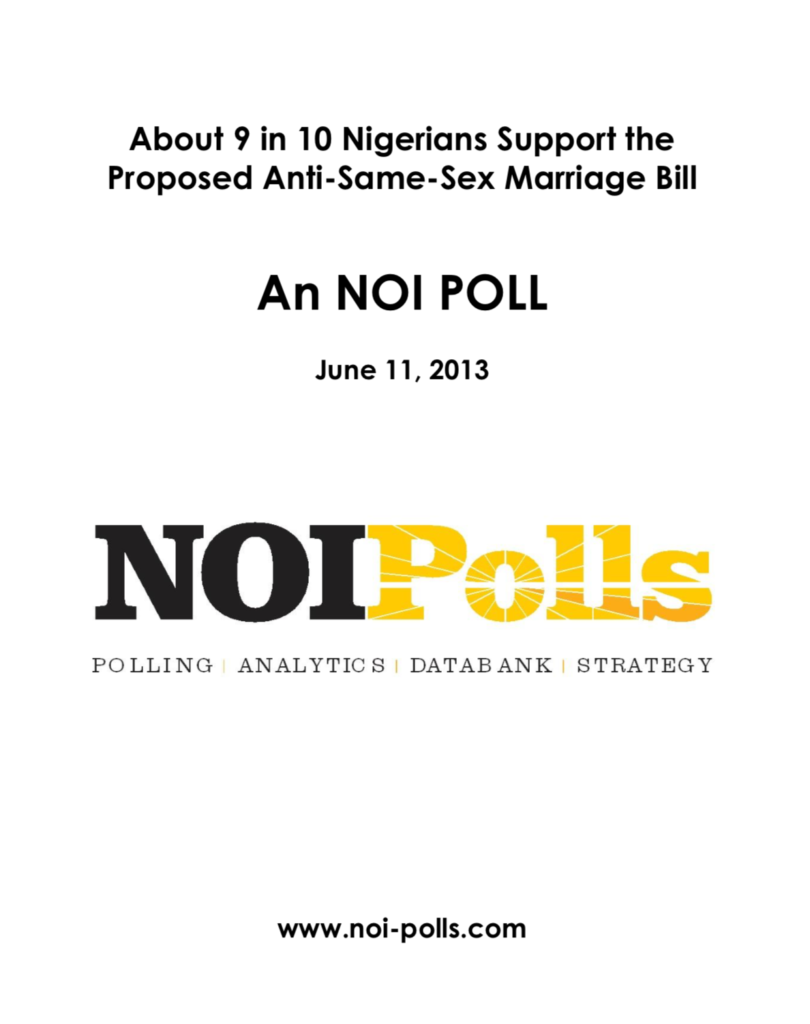
2013 Social Perception Survey on Lesbian, Gay and Bisexual Rights
In the first biennial poll, NOI Polls survey the attitude of Nigerians towards LGB Issues and persons.
